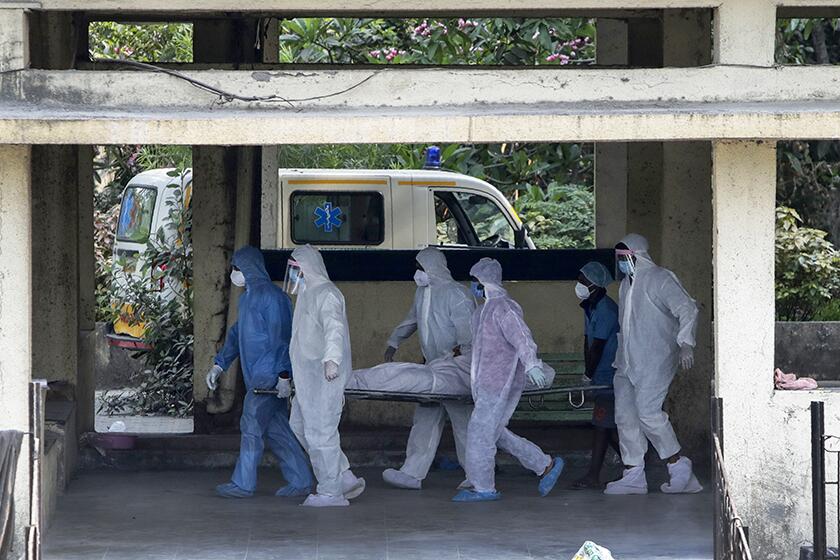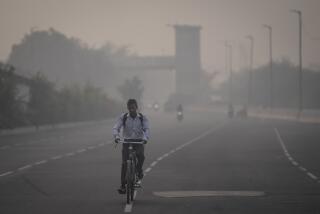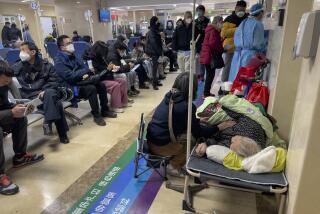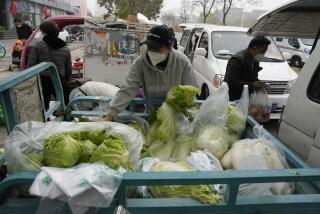New Delhi goes into lockdown amid Indiaâs explosive coronavirus surge
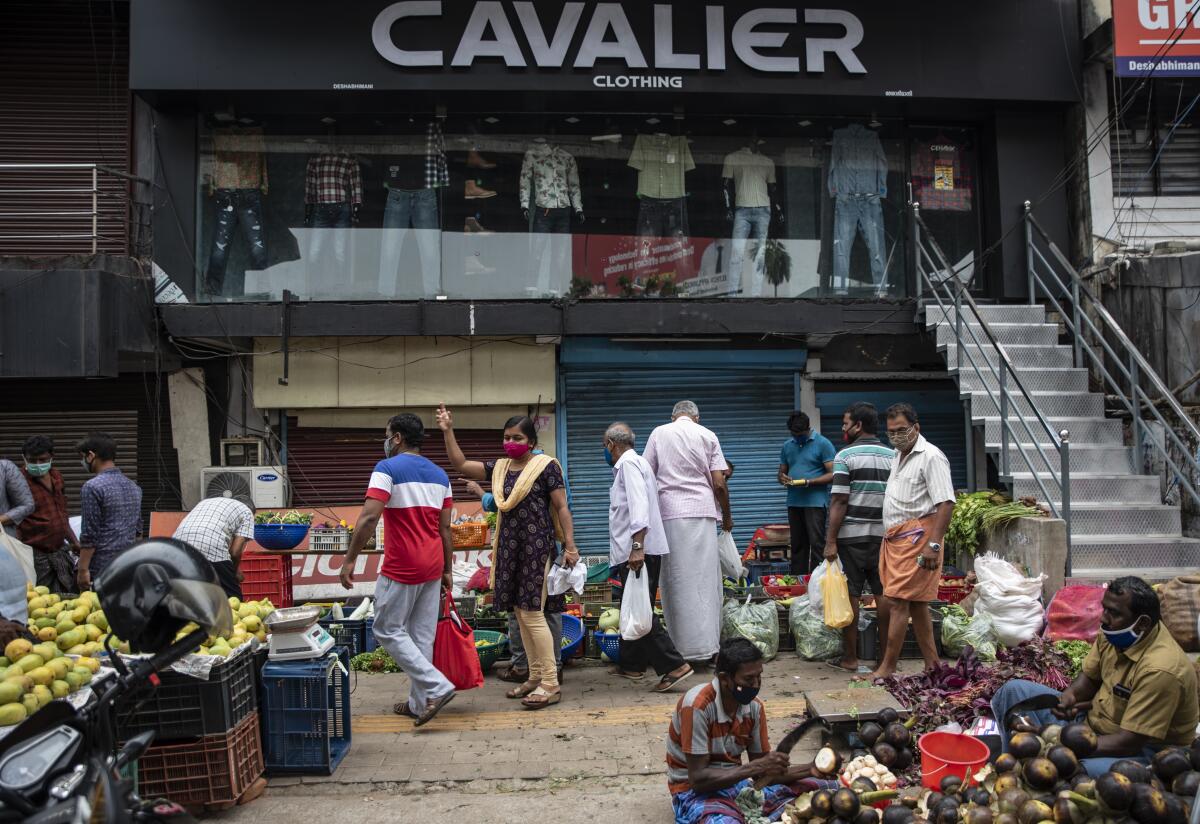
NEW DELHI â Indiaâs capital imposed a weeklong coronavirus lockdown Monday night amid an explosive surge in infections, which authorities said had pushed the cityâs tottering healthcare system to its limit.
In scenes familiar from surges elsewhere, ambulances in New Delhi ricocheted from one hospital to another, trying to find an empty bed over the weekend, while patients lined up outside waiting to be let in. Ambulances also idled outside of crematoriums, carrying half a dozen dead bodies each.
âPeople keep arriving, in an almost collapsing situation,â said Dr. Suresh Kumar, who heads Lok Nayak Jai Prakash Narayan Hospital, one of New Delhiâs largest hospitals for treating COVID-19 patients.
Most desperately need oxygen, Kumar said. The city is facing shortages of oxygen and some medicine, according to Chief Minister Arvind Kejriwal, who told reporters that the new stringent measures being imposed were required to âprevent a collapse of the health system,â which had âreached its limit.â
Just months after India thought it had seen the worst of the pandemic, the coronavirus is now spreading at a rate faster than at any other time, said Bhramar Mukherjee, a biostatistician at the University of Michigan who has been tracking infections in India.
The surge is devastating for India and has also weighed heavily on the global efforts to end the pandemic because the country is a major vaccine producer but has been forced to delay exports of COVID-19 doses, hampering vaccination campaigns in developing countries in particular.
Deaths are running at around 12,000 per day on average worldwide, and new cases are climbing in India, Brazil and other hot spots.
According to Indiaâs health ministry Monday, Delhi reported 25,462 cases and 161 deaths in the last 24 hours.
India overall reported 273,810 new infections Monday, its highest daily count since the start of the pandemic. The country has added more than 1 million new cases in just four days, going from a cumulative tally of 14 million Thursday to more than 15 million Monday â a number second only to the United States. British Prime Minister Boris Johnson on Monday called off a trip to New Delhi amid the rise in cases.
The Health Ministry also reported 1,619 deaths from COVID-19 in the last 24 hours, pushing the toll to 178,769. Experts say the infection and death figures are likely an undercount.
India has the fourth-highest number of deaths after the U.S., Brazil and Mexico â though, with nearly 1.4 billion people, it has a much larger population than any of those countries. A new variant of the coronavirus detected in India has also sparked concern.
New Delhi, a city of 29 million people, has fewer than 100 beds with ventilators, and fewer than 150 beds available for patients needing critical care.
Experts said that while the pause on Johnson & Johnsonâs vaccine may make sense for the U.S., stoppages in poorer countries would end up costing lives.
In response, officials have begun to impose stringent measures again. The Indian capital was shut down over the weekend, but now authorities are extending that for a week: All shops and factories will close, except for those that provide essential services, such as grocery stores. People are not supposed to leave their homes except for a handful of reasons, including seeking medical care. They will also be allowed to travel to airports or train stations.
They are the strictest measures imposed since Indiaâs harsh lockdown last year, which lasted months and left deep scars. Politicians have since been reluctant even to mention the word. When similar measures were imposed in Mahrashtra state, home to the financial capital of Mumbai, in recent days, officials refused to call it a lockdown. Those restrictions are to last 15 days.
Kejriwal urged calm, especially among migrant workers, who particularly suffered during the previous shutdown, saying this one would be a âsmall lockdown.â
But many feared it would spell economic ruin. Amrit Tripathi, a laborer in New Delhi, was among the thousands who walked home for miles after India abruptly announced last yearâs draconian nationwide lockdown. âWe will starve,â he said, if the current lockdown is extended.
More to Read
Sign up for Essential California
The most important California stories and recommendations in your inbox every morning.
You may occasionally receive promotional content from the Los Angeles Times.
